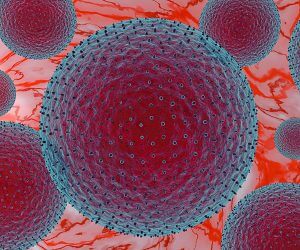 The rate of sexually transmitted infections (STIs) in Australia is continuing to rise and the best way to stop it is to get tested regularly so you and other sexual partners can get treated. Australians are having more sex with more partners then previous generations and so they must also be better at getting tested. Many STIs don’t have any symptoms and without treatment can hang around for a long time. A lot of these STIs have the potential to cause serious problems if they aren’t treated.
The rate of sexually transmitted infections (STIs) in Australia is continuing to rise and the best way to stop it is to get tested regularly so you and other sexual partners can get treated. Australians are having more sex with more partners then previous generations and so they must also be better at getting tested. Many STIs don’t have any symptoms and without treatment can hang around for a long time. A lot of these STIs have the potential to cause serious problems if they aren’t treated.
Syphilis
Syphilis is on the rise in Australia and in other parts of the world despite being very easy to treat. It is particularly common in men who have sex with men (MSM) living in major cities as well as Aboriginal and Torres Strait Islander (ATSI) people living in Northern Australia. In ATSI people syphilis is much more common acquired through heterosexual sex and the group most at risk is women aged 15 to 19 years old.
Click here to learn more about this condition or here to make an appointment to get tested today.
Hepatitis B
Hepatitis B is an uncommon infection in Australia due to most Australians being vaccinated. Even in those who do develop Hepatitis B most people (more than 95% of adults) will naturally cure the virus on their own unless it is acquired as child. A small minority will develop chronic Hepatitis B which can be treated but which can not yet be cured. Most people who develop chronic Hepatitis B first catch it as a baby or as a child under the age of 5.
Click here to learn more about this condition or here to make an appointment to get tested today.
Mycoplasma Genitalium
Mycoplasma has only recently been identified as a STI and is difficult to test for and to treat. There is still much to learn about this organism. It is one of the smallest living things on the planet and its has the shortest length of DNA known to science.
Click here to learn more about this condition or here to make an appointment to get tested today.
Chlamydia
Chlamydia is a very common STI that often doesn’t cause any symptoms. If it isn’t treated it can cause serious long term problems for women and for men who have sex with men it dramatically increases the risk of acquiring HIV. It is estimated that only almost 75% of people who acquire chlamydia won’t be diagnosed. Most men with chlamydia will clear the infection naturally by about 6 months but for women it may take years for the infection to clear on its own.
Click here to learn more about this condition or here to make an appointment to get tested today.
Gonorrhoea
Gonorrhoea is a STI that is becoming more and more common. It mostly affects young people aged under 30, especially men who have sex with men and Aboriginal and Torres strait islanders. Like chlamydia, if it isn’t treated it can cause serious long term problems for women and it increases the risk of acquiring HIV in men who have sex with men (MSM).
Click here to learn more about this condition or here to make an appointment to get tested today.
Human Papillomavirus (HPV)
HPV is the most common STI and prior to the national HPV vaccination program it was estimated that about 80% of the population would acquire at least one strain of HPV at some point in their lives. There are over 200 different strains of HPV some of which can cause cancer and some of which can cause genital warts. Of these many strains only about 40 of them are transmitted through sexual contact. For most people HPV will not cause any harm at all and the body usually clears HPV itself after 1 to 2 years. Even if you do come in to contact with a strain that causes cancer the chances of developing cancer are very small and it takes many years to actually happen.
Click here to learn more about this condition or here to make an appointment to get tested today.
Genital Herpes
Genital herpes is a very common STI caused by the herpes simplex virus (HSV). About one in three people will acquire the virus in their lifetime. There are two kinds of HSV and both can cause genital herpes. HSV-1 usually causes cold sores and sometimes causes genital herpes while HSV-2 usually causes genital herpes and sometimes causes cold sores. A genital herpes infection, once acquired is lifelong, it causes an outbreak of herpes sores that eventually disappear over about 2-3 weeks. After the first episode there are typically recurrent outbreaks and these may occur only once or multiple times per year. After the first 6-12 months these recurrences usually become less frequent and less severe.
Click here to learn more about this condition or here to make an appointment to get tested today.
